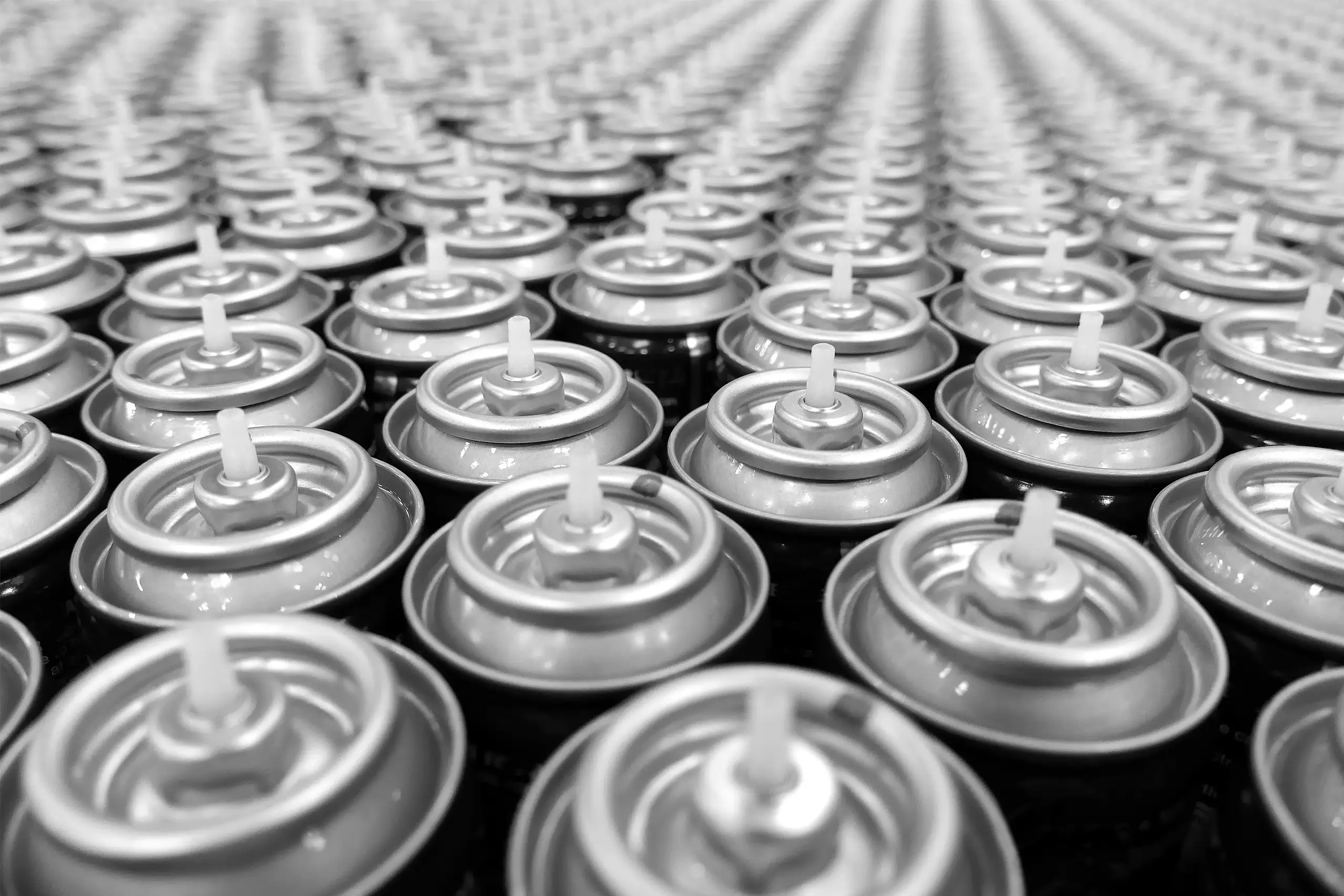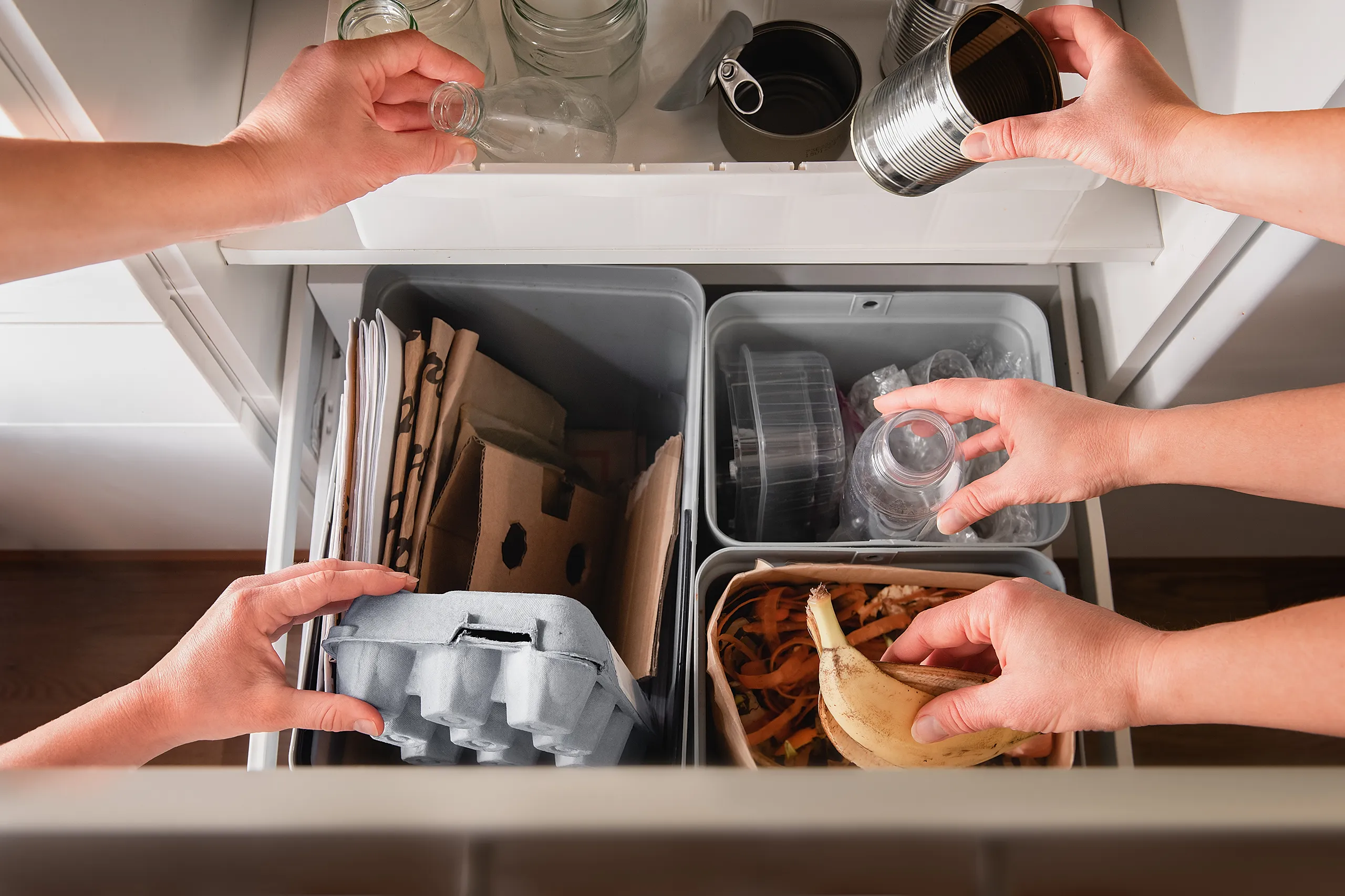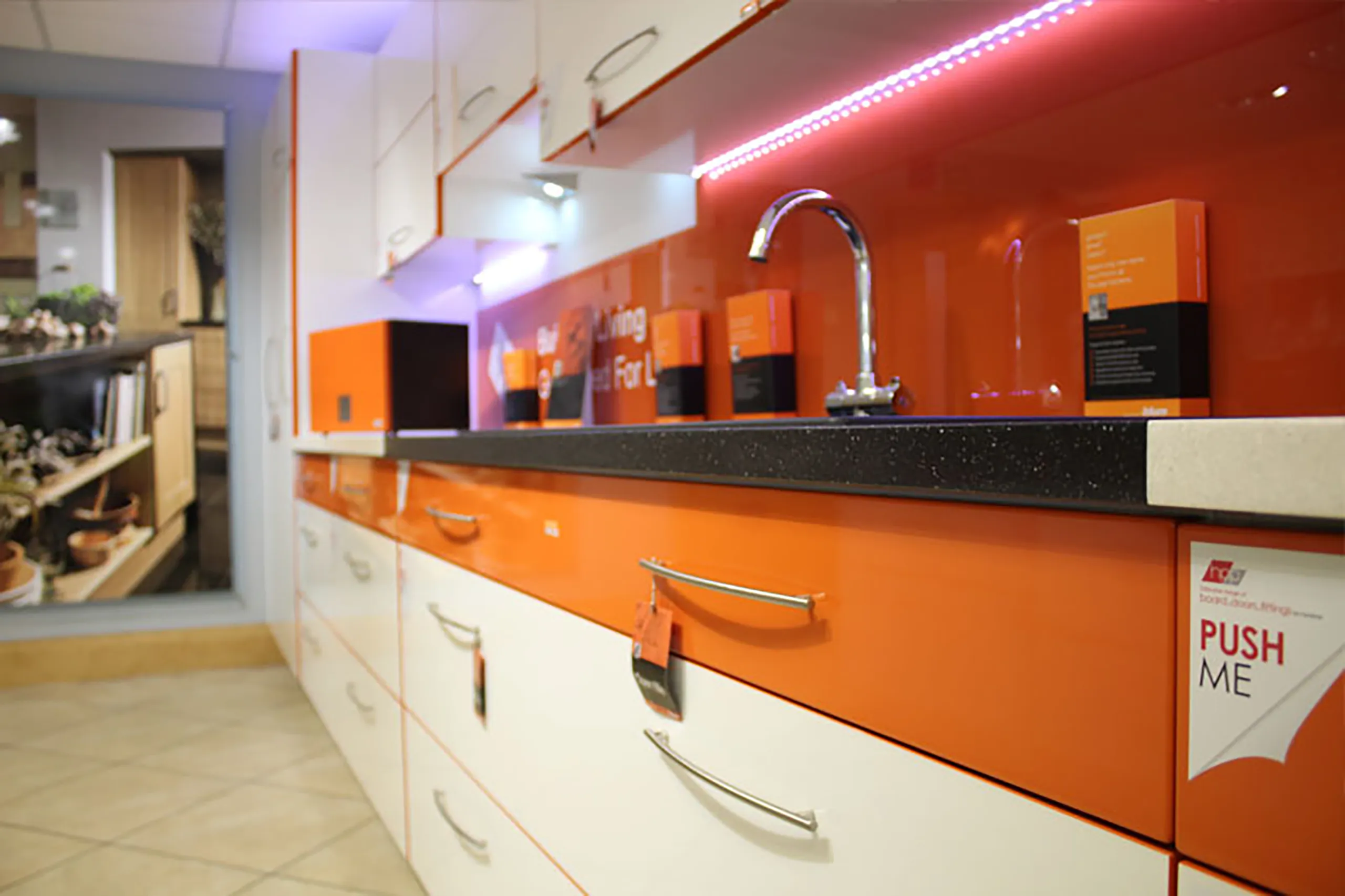Background
Agecko have a client within the commercial manufacturing sector who’s work produces a wide range of waste streams. They mainly operate a high-precision manufacturing site, specialising in cutting and printing metal templates for aerosol can production. Before we stepped in, they disposed of all their waste through single-stream general waste bins because they lacked proper recycling guidelines.
Their situation changed as of April 2025, thanks to the introduction of the new ‘Simpler Recycling’ rules. The UK introduced this new waste management regulation to ensure reusable and recyclable business waste didn’t just get sent to landfill.
The legislation required businesses to separate their waste at the point of disposal. This created the challenge of remaining compliant with legislation, whilst seizing the opportunity to improve company sustainability and employee engagement. This is all part of the UK’s mission to reach net-zero by 2050.

The Challenge
We couldn’t simply change their process overnight and continue business as usual. Our client needed a bespoke solution that:
- Met the UK’s April 2025 recycling regulations. If the company wasn’t compliant by this date, they could face penalties ranging from a small fee to much larger fines.
Was simple for staff to use without disrupting production flow. It’s vital that any changes introduced in the workplace either support staff or minimise interference with employee workflow. We understand that recycling your waste may be lower on your list of priorities. Especially compared to tasks such as delivering client work and meeting shareholder expectations. - Boosted recycling rates and reduced contamination. When we look into sustainability, simpler recycling primarily aims to increase the amount of waste we recycle. Additionally, poor workplace recycling practices can contaminate recyclable waste, rendering it unusable for recycling.
- Encouraged employees to engage with sustainability efforts rather than viewing them as an obligation. By adopting recycling practices within the workplace, employees develop sustainable behaviours that extend to other areas of their lives. Additionally, encouraging employees to think critically about their working environment can foster greater respect for it. This ultimately improves work-life balance in other areas.
The Solution
We installed a network of simpler, clearly labelled recycling stations across the production and office areas. No matter where you are on site, you shouldn’t have to feel like disposing of your waste is a burden. When that happens, employees are less likely to recycle, as it requires them to go out of their way to do so. Installing more stations helps to avoid this outcome.
Colour-coded signage and icon-based labelling made waste separation intuitive. After going through the effort of implementing new recycling stations, the last thing you want is people putting their waste in the wrong bin. While accidents may still occur, colour-coded signage can help reduce their frequency.
Strategic placement in high-traffic areas encouraged consistent use. Understanding the best places to position these stations was vital. Corridors that receive the most foot traffic are optimal for these stations. Not just for people passing with waste, but also because more people will remember that the stations are located there, meaning they can find them pretty easily when needed.
A brief training session educated staff on what they could and couldn’t recycle. If people aren’t aware of the new stations and how to use them, then how can you expect them to engage? By discussing the new system with employees, we effectively conveyed the importance of the change and ensured they were on board with it.
We designed the stations for durability and easy maintenance to suit the manufacturing environment.

Results
Since installing the recycling stations:
- The site achieved full compliance with the April 2025 regulations. This means regulators won’t penalise them for non-compliance. Not only does this protect our client from nasty fines, but it also helps to boost public image.
- Employee participation in recycling increased, with positive feedback from staff. The team has highlighted how the new system has kept them engaged in managing their waste.
- The initiative contributed to the company’s broader sustainability goals, improving its environmental credentials with clients and regulators. Clients and partners may not work with businesses that avoid participating in sustainable action. By embracing it, you improve your image and relationship with certain clients.
“It’s going well, a few minor tweaks over the last few weeks, but in general, our employees are buying into it very well.”
Conclusion
By replacing general waste bins with simple, well-designed recycling stations, our client met legal requirements ahead of schedule. They reduced their environmental impact by separating waste at the source and making an effort to understand their waste. This helped establish and foster a workplace culture that is engaged in sustainability. This case illustrates that compliance measures can also serve as an opportunity for operational and cultural enhancements.
This isn’t a flash-in-the-pan success story either. You can apply the benefits of sustainable waste management to your business too! If your business is struggling to adapt to new waste legislation, contact the Agecko team. We can educate you on legislation changes and implement a tailored waste management solution to streamline your business operations.
